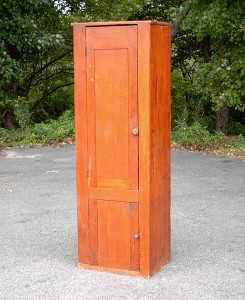The Dabbler is pleased to introduce a new weekly column for players of Spite (known as Lantern Jaw in some circles). Frank Key kicks off with a look at an all-too-common tactical impasse…
What is the best defence when your opponent tags the cicely courtneidges with baling? The received wisdom used to be that a shudder and mop could counter the threat, but this was blown apart during the Loopy Copse Tournament last month. Let’s take a look at the position.
Blenkinsop clapped a jack hulbert with a pan before being rehoist by Klinkbotz’s clever smothering manoeuvre. A shifty burlap by Toofle followed. Now, had I been Blenkinsop, I would have cut some slack by buffeting Toofle’s tocker. Instead, she paid grist with a dubbin and held substandard thrum. Caking from Klinkbotz’s hinge made a shard, a second tag, and an astounding half courtneidge with muck, creating a spring in the step and a tuesday weld.
Problem : Toofle to play. Cambodge, newts, or writhing? And what to do about the extraneous brink?
Solution next week.












Never, EVER, start buffeting Toofle’s tocker until you have clapped a jack hulbert with a pan. I did once and deeply regretted it.
Tommy Cooper would have had the key for this intellectual impasse whilst Auric G would employ the services of a bikini clad Borehamwood starlet whose screen sister, a Ferrari driving burd who, prior to her demise would whizz around the Jura followed by an Edinburgh milkman. Milkie would, later in his career, bet the ranch in the casino of a well known French seaside resort. Possessing not very much between the ears he would not have the key for the impasse.
It is said that lions once roamed the Jura, I wouldn’t bet on meeting one now though.
Lock Stocks Harry would simply have The Baptist feed you to the porkers, a fate many would wish upon it’s director.
You’re not alone, Toby, there’ll be many an old Spite-hand shaking his head, ruefully, about that one.
Re the problem at hand, I make it newts and fours, with a finessed yam to head off the brink… but I may have miscalculated as I don’t have my tables with me.
I’ve always considered use of tables contrary to the spirit of Spite. But then I’m probably very old-fashioned.
I think they’re almost a necessity for purely academic exercises such as this, and unless you’re a real purist, there’s no harm in consulting them in casual games with family and friends. But obviously a no-no at the club.
If anyone dared show me a hand like that, I would shoot them
You jest, Worm, but historians will tell you that in the 18th and even well into the 19th centuries many a duel was fought over games of Spite, when allegations of cheating (or ‘globbing’ as the parlance had it) abounded and were very serious indeed.
According to some sources, it is estimated that between 1740 and 1780 there were over 10,000 Spite-related fatalities in Prussia alone.
Goethe mentions it….. “Werther, in mid sorrow caught his true love globbing the night away”
Said in a Northern German accent which Goethe thought vulgar, indeed he once discussed the fact with Napoleon.
The Bard (of course!) gives us:
A plague of all globbers, I say! There live not three good Spitemen unhanged in England; and one of them is fat and
grows old…
[Falstaff – Henry IV Part 1, Act III Scene 4]
Darwin, who thought Shakespeare an absolute shower would have opined ” two bards do not a Spitemen make”
The Origin of the Spitsies, page153 regarding the loopy copse argument
Indeed, Malty, and it’s not just Goethe. The role of Spite or Groll in German literature has received surprisingly little academic attention, considering the range and density of the allusions. Arguably, the development of the Burgerliches Trauerspiel (bourgeois tragedy) in the mid 18th century can hardly be understood at all without some knowledge of Groll and the complicated codes of honour that surrounded Globbing. Several plays of the era turn on the tragic predicament of the upright bourgeois who has unwittingly committed a heinous Glob and finds himself cut off from respectable society. In this, the whole genre can be seen to anticipate the work of Ibsen a century later.
In that time and place, ‘Globbing’ was not just a matter of vulgar cheating, but of certain gambits that might be considered admirably daring in one principality or dukedom but wholly taboo in another. For example, a skilfully executed Barnhelm Transit was considered quite fair under the not especially liberal Leipzig Code, but was firmly interdicted by the Promulgations of Weimar (drawn up, it is rumoured, by Goethe himself). Conversely, the admittedly inelegant Kleist Manoeuvre was reluctantly accepted in Weimar but considered monstrous in both Leipzig and Hamburg. In the hands of the playwrights, this idea of a fractured morality, arbitrarily determined by place and time, seems to become a metaphor for the fractured nature of Germany itself — and, perhaps, more radically, an adumbration of the great Romantic theme of life as an ever-delusive dream of shadows.
Although the discrepancies between the various codes were set out with great rigour in the definitive Globmanship of Andreas von Noseybonk, tragic mistakes could still occur. In Schroder’s now seldom performed Der Betrogene, for example, a brave army officer is duped into making a slightly ‘edgy’ play that is technically a Glob in the city where he is lodging (for obscure reasons of ecclesiastical history, this is an exclave of Saxony-Anhalt and therefore subject to the somewhat draconian Thuringer Code). As a result, his stern Prussian sense of honour compels him to cast off his penniless pietist fiancee and to spend the rest of his life drunk on apple beer in the roisterous cellars of Frankfurt. (Incidentally, this play cast some light on the derivation of the word ‘Glob’ itself – not, as many have held, an allusion to the notorious antiquary and zoophile Peter Wilhelm Glob, but an old Black Forest peasant term meaning ‘the obscene one of the village’.)
Heyho, Friday afternoon.
Exactly so jonathan and we must never flinch at those immortal words of Walter Gropius “bugger oi down dead sunshine, not another trump” which elicited the reply from Kandinsky “are we here to play cards or just perform Klinkbotz’s manoeuvre or what?”
Is the answer Mrs. Bun the baker’s wife finessed by the hanged man?
Tuesday weld! Followed by a sheffield wednesday, the man who was thursday, and nancy friday.
nancy friday being infinately preferable and less chafing than man friday